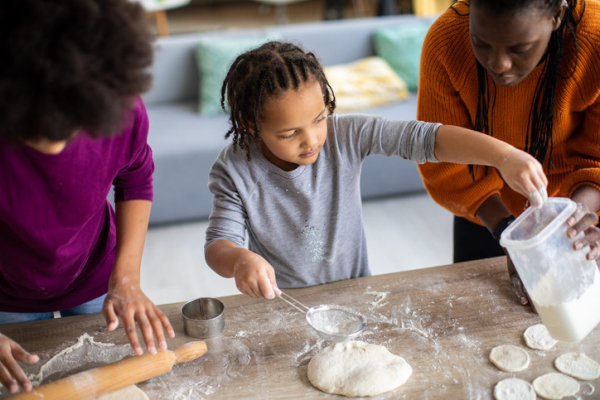
All parents want their children to be successful in life — and by successful, we mean not just having a good job and a good income, but also being happy. And all parents wonder how they can make that happen.
According to Harvard’s Center on the Developing Child, it’s less about grades and extracurricular activities, and more about a core set of skills that help children navigate life’s challenges as they grow. These skills all fall under what we call executive function skills that we use for self-regulation. Developing strong executive function skills, and finding ways to strengthen those skills, can help people feel successful and happy in life.
What are five important core skills?
- Planning: being able to make and carry out concrete goals and plans
- Focus: the ability to concentrate on what’s important at a given time
- Self-control: controlling how we respond to not just our emotions but stressful situations
- Awareness: not just noticing the people and situations around us, but also understanding how we fit in
- Flexibility: the ability to adapt to changing situations.
While these are skills that children (and adults) can and do learn throughout their lifetimes, there are two time periods that are particularly important: early childhood (ages 3 to 5) and adolescence/early adulthood (ages 13 to 26). During these windows of opportunity, learning and using these skills can help set children up for success. In this post, we’ll talk about that first window of early childhood.
The best way to learn any skill is by practicing — and we are all more likely to want to practice something if it is fun and we feel motivated. Here are some ways that parents can help their children learn and strengthen executive function skills.
Planning
It’s natural for parents and caregivers to do the planning for young children, but there are absolutely ways to get them involved, such as:
- Planning the day’s activities with them, whether it be a school day or a play day. Talk about all the day’s tasks, including meals, dressing, bathing, and other things; help them see it as part of a whole, and something that they can help manage.
- Cook or bake something together. Put together the shopping list, go shopping, go over the recipe together, and help them understand all the steps.
- When getting ready for a holiday or a party, include them in thinking about what everyone would like to do and how to do it.
Focus
The explosion of device use has definitely caused all sorts of problems with focus in both children and adults. There is an instant gratification to screens that makes it hard to put them aside and focus on less stimulating tasks. Now, more than ever, it’s important to:
- Enforce screen-free time, even if they complain (parents need to abide by this too).
- Have the materials on hand to make or build things. Find projects that will take an hour or two. Do it with them!
- Read print books out loud together, including chapter books. Having to picture things themselves rather than seeing it on a screen helps children learn to focus.
Self-control
This is one where being mindful of your own reactions to situations is important. How do you react to anger and frustration? Is road rage a problem for you? Remember that children always pay more attention to what we do than what we say. To help your child learn self-control, you can:
- Talk about feelings, and about strategies for managing strong emotions — like taking a deep breath, stepping away from the situation, screaming into a pillow, etc.
- Help them understand how their behavior affects others, and why it’s important to be mindful of that (which also teaches awareness).
- Debrief after tantrums or upsets. What could everyone have done differently?
Awareness
This one can be fun to teach.
- Go for walks. Visit places together. Listen and watch. Imagine together what people might be doing or thinking.
- Join community service activities; show children that anyone can make a difference.
- Have rituals of checking in as a family, like at dinner. Give people a chance to talk about the best and worst parts of their day, and talk about ways you can work better as a family and treat each other well.
Flexibility
We tend to cater to our children and their needs, making our schedules and plans around them. Some of that is pure parenting survival. But ultimately, it’s not always helpful; life has a way of messing up even the most careful plans. Kids need structure, sure, but they also need to be able to adjust to the inevitable curve balls.
- Don’t always say no to something that might happen during a naptime or mealtime. It’s okay if schedules occasionally vary.
- Be spontaneous when you can. Go for an unplanned outing, and otherwise make last-minute plans sometimes.
- When plans change or fall through, be upbeat about it and make the most of it. Be a role model.
In helping your children learn these skills, you might just learn something about yourself — and learn some new skills too.
Follow me on Twitter @drClaire
